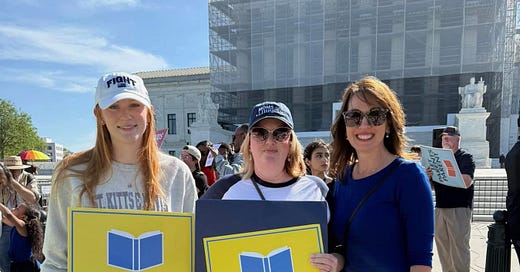On April 22, 2025, the U.S. Supreme Court heard oral arguments in Mahmoud v. Taylor, a pivotal case that could reshape the balance between public education and parental rights. The main question is whether public schools violate the First Amendment’s Free Exercise Clause by requiring elementary students to participate in lessons involving sexual lifestyle-themed storybooks without offering parents the ability to opt their children out.
The case arose from Montgomery County, Maryland, where the school district introduced books celebrating various sexual lifestyles (LGBTQ+) into its elementary curriculum beginning in 2022. Although parents were initially given the option to exempt their children, the district later revoked that right, citing administrative difficulties and concerns about stigmatizing students with certain identities.
A coalition of Muslim, Catholic, and Ukrainian Orthodox parents sued, arguing that the mandatory exposure to content that contradicts their faith places a substantial burden on their right to direct their children’s moral and spiritual upbringing. During oral arguments, the Court’s conservative justices appeared sympathetic. Justice Samuel Alito noted that some of the storybooks clearly promote moral messages that “a lot of religious people would disagree with.”
The parents also argue that the school’s policy isn’t neutral or generally applicable—two legal standards that trigger strict scrutiny under Supreme Court precedent. They allege that school board members made disparaging remarks about religious families, accusing them of using their beliefs as a reason to hate, suggesting an underlying hostility toward religion. Such comments, if proven, could influence the Court’s decision, as seen in previous cases where governmental animus toward faith communities played a critical role.
Outside the Court, crowds from both sides gathered. One grandfather, holding a sign that read “Let Parents Parent,” told NBC News, “The reason I’m out here is to let parents be parents. It’s a right — they’re the parents’ kids, not the government’s. What’s taught to them should be up to the parents. We don’t believe in those values, and we don’t believe our kids — in my case, my grandkids — should be taught these things. It’s as simple as that. These are personal values, and that should be my right. It is my right under the Constitution.”
Although the case originates in Maryland, the implications could reach far beyond. In California, current law allows parents to opt out of comprehensive sexual education but not from content related to gender identity or sexual orientation when it appears in other subjects. A ruling in favor of the parents could force school districts across the state to revisit their curricula and notification policies. It may also energize ongoing debates about how much control parents should have over what their children are taught in the classroom. Many argue that the control rests with the parent and the only authority the school has is what was given to them by the parent.
A decision is expected by the end of June, and with it, a defining statement on the constitutional limits of state authority in shaping students’ moral education. In other words, a victory for parental rights!




